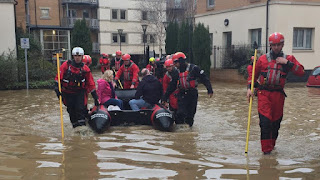We run through the day, and Sunset happens at 4:18pm.
We run through the night - and on January 10th, Sunrise doesn't happen until 8:20am again.
 |
| Foggy Morning on the High Peak Marathon a couple of years ago |
I am no stranger to night runs, and certainly no stranger to headtorches, having been a course tester for the Marmot Dark Mountains event, doing the High Peak Marathon and other night based races. I haven't, though, competed in an event with quite such a long time in darkness before.
 |
| Headtorcher on Bleaklow |
The Silva website gives an estimated burn time at 10 hours on the lowest setting, and 2:30 on the highest. So no, I'm not going to be going around spraying light everywhere. 5 hours of extremely bright light might be useful for a bit, but for the rest of the 11 or 12 hours I'll be stumbling around in complete darkness. Not so good.
 |
| We can only hope for a night as good as this |
Looking for signs, checking I'm on the right path, going down hills, scaring off monsters, that kind of thing - needs a bit more than low level lighting, and I would imagine that flicking through modes is
going to significantly impact the usable time for my light.
All these thoughts are going through my head, and I had a bit of a non-scientific experiment
involving the torch and a stop watch to see just how long it takes to run down. I was fairly impressed to see that it stayed on for 9.5 hours, way above what I was expecting, and pretty close to the advertised 10 hours. It was telling me it was low on battery for about 2 hours before it suddenly just went. None of this pansying around getting dim, just run, run, run, run, dead.
Good to know.
A few mates have recently done some overnight runs and races, and have been testing kit during those, which is a thoroughly good idea and makes me feel quite unprepared. (or at least, under-prepared), still, getting a better handle on just how long the light is going to last will give me an idea if an extra light is needed for that time when the last batteries die and it is still a couple of hours to sun up....
Remind me why you're doing this again?
 |
| Glossop Mountain Rescue Team helping out in the aftermath of Storm Desmond |
The kit all costs money. The water training courses costs money. Those floaty boats cost money - and for the last few flood calls we as a team have attended, we had to borrow one.
It's not paid for by the government, we are not part of the fire service - it all comes from donations.
There are 4 of us from Glossop Mountain Rescue running the inaugural Mountain Rescue Spine Challenger Event. We will run 108 miles from Edale to Hawes alongside other members of rescue teams, and the Spine Challenger event.
We are raising awareness and funds for our individual MR teams - without the support of people like you, our ability to respond to Mountain and Flood rescues would be severely curtailed.
Please visit our Just giving page and help us out.












